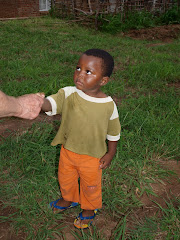The Human Immunodeficiency Virus (HIV) is the pathogen that causes AIDS. In this short clip, three of scientists discuss how HIV infection occurs, how the virus attacks the immune system, and how it replicates within white blood cells. Visit the documentary website - http://www.conversationswiththeliving.org.
HIV: Belongs to a group of viruses called retroviruses. There are several types (varieties) of HIV. There are many types of the virus found in different areas of the world, especially in different areas of Africa. If you are infected with any type of HIV, and you are not treated with antiretroviral drugs, you will almost certainly develop AIDS and die within two to fourteen years. If you get good medical care and take antiretroviral drugs properly, you may live longer but will likely die of AIDS in the end.
HUMAN: The virus is only found in humans. It is not found in animals or insects.
IMMUNODEFICIENCY: The virus reduces the defense power of the immune system. The immune system has the job of protecting the body from all kinds of infections and invaders. It destroys harmful microbes that enter the body.
VIRUS: A virus is a microbe too small to see with a regular light microscope. Viruses are the smallest of all micro-organism, hundreds of times smaller than a bacteria or malaria parasite.
 |
| Colored scanning electron micrograph of a T4 cell (green) infected with HIV (red). © NIBSC/Science Photo Libraryc http://www.aidsmeds.com/articles/hiv_life_cycle_9635.shtml |
How does someone get HIV?
HIV is spread most often through sexual behavior in Africa. In the US it is considered a homosexual disease or a disease of IV drug users. But in Africa, HIV is largely a heterosexual disease. Sub-Saharan Africa has a low IV drug use rate. Instead, HIV is spread through sexual promiscuity. The promiscuous husband brings the HIV back into the family and infects his wife or wives. The women carry the disease and then spread HIV to their children through delivery and nursing. One of the greatest 1st steps in eradication of the disease is through testing for HIV. If a person is tested, they will be more likely to think more carefully about sexual contact and more likely to change their behavior. In Zimbabwe, testing is a priority for all people, even children.
HIV is spread most often through sexual behavior in Africa. In the US it is considered a homosexual disease or a disease of IV drug users. But in Africa, HIV is largely a heterosexual disease. Sub-Saharan Africa has a low IV drug use rate. Instead, HIV is spread through sexual promiscuity. The promiscuous husband brings the HIV back into the family and infects his wife or wives. The women carry the disease and then spread HIV to their children through delivery and nursing. One of the greatest 1st steps in eradication of the disease is through testing for HIV. If a person is tested, they will be more likely to think more carefully about sexual contact and more likely to change their behavior. In Zimbabwe, testing is a priority for all people, even children.






